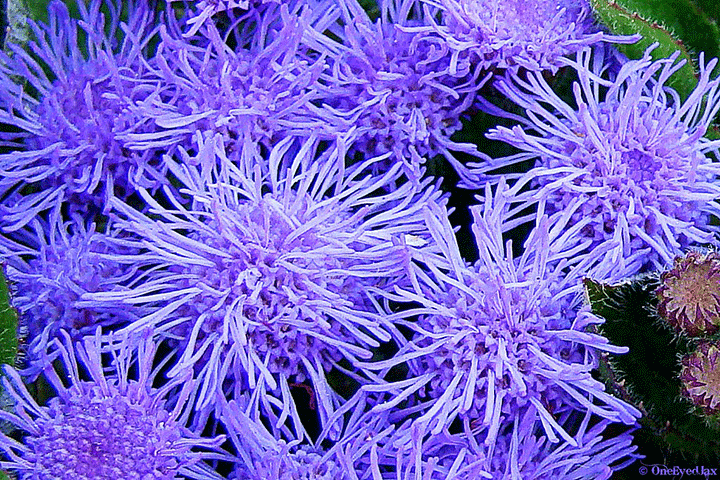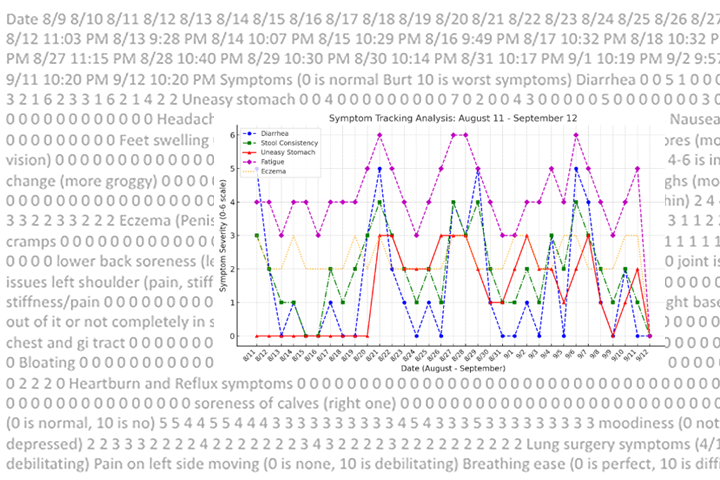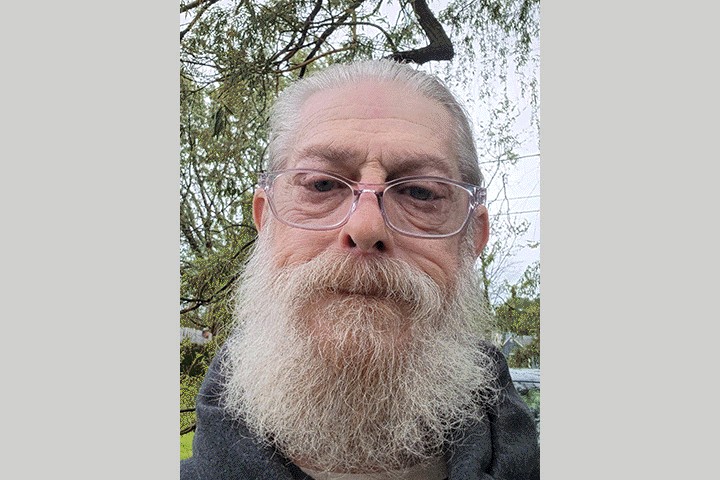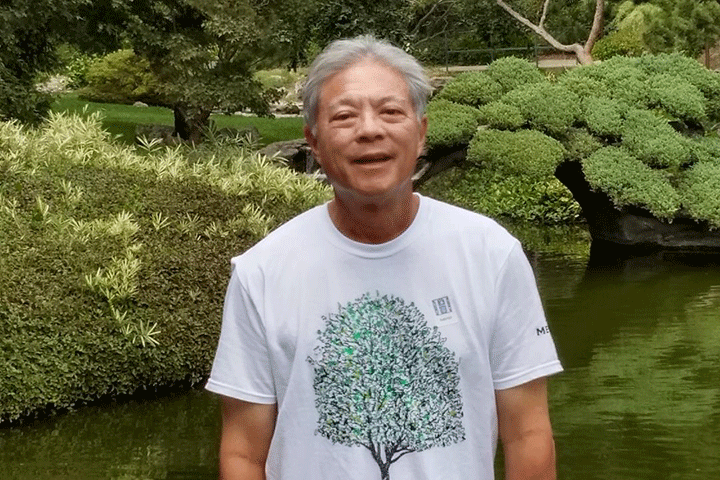Working Hard to Beat Pancreatic Cancer
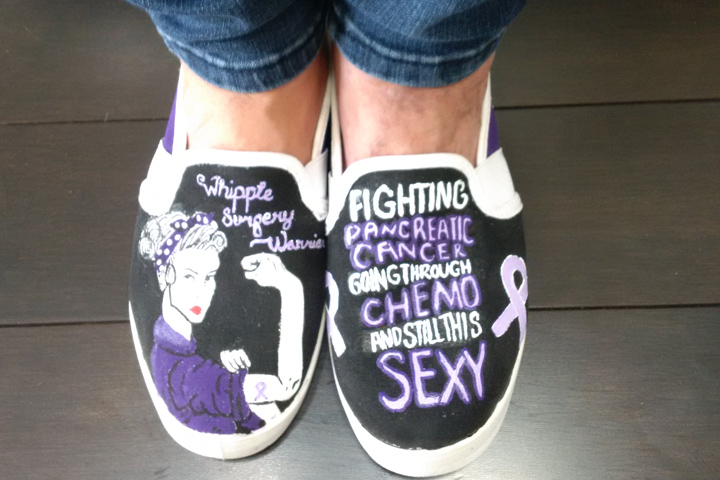
- A rapid diagnosis
- Full pancreatectomy leads to type 3c diabetes
- Chemo with FOLFIRINOX
- Living life to the fullest
- Strong advocacy and positivity
My name is Alexandra Robis, but everyone calls me Sandy, and I am a pancreatic cancer survivor—yippee!!!
Cancer is not new to our family. I am also an eight-year breast cancer survivor, I lost my mother to pancreatic cancer, her two brothers had colon cancer, and I lost my first cousin to ovarian cancer. Fighting the fight is not new to me both as a survivor and caregiver. When my mother was diagnosed with pancreatic cancer, she died literally four months to the day, as the doctors had predicted. She was not offered treatment, simply pain meds. Thirty years ago, we largely relied on what the doctors told us—we didn’t have the internet like we do now so we can research medical articles or join support groups to hear from like-minded people and their experiences. Things have certainly changed.
It was just before Christmas in 2018. I knew something was seriously wrong when I began itching all over, had pain between my shoulder blades, darker than usual urine, and fatty, oily, floating stools one Sunday. In hindsight, I was eating smaller meals and getting full quicker and had some fatigue, but I just attributed that to old age! I hit up Dr. Google and after some searching, I thought I had pancreatitis or hepatitis. While pancreatic cancer was in the back of my mind, the optimistic side of me said, “It can’t be that.”
For those who think the Canadian healthcare system is slow . . . not in my case! It was 11 days from diagnosis to treatment. On Monday I saw my GP, who initially thought it might be hepatitis, and immediately ordered lab work, which I had the following day. On Wednesday, I heard that the blood work was deemed suspicious so an ultrasound was ordered and I had one that same day. At this point my GP contacted Juravinski Hospital to engage Dr. Deepak Dath, a surgeon who specializes in GI surgeries , specifically pancreatic cancer and the Whipple procedure. Dr. Dath quickly arranged for a CT scan on Saturday. I got the results back immediately; I had a mass in the head of my pancreas. He also noticed I was starting to become jaundiced so I had a stent put in via ERCP the following Monday.
Diving Right Into Treatment
Dr. Dath recommended a Whipple procedure for me. We originally planned it for early January, but the operating room was booked up, so we agreed it had to be done ASAP. He went into detail about what the Whipple procedure entailed and what organs/glands would be removed, why, and the impact of having what’s left of my insides/plumbing re-routed. Given only 15 to 20 percent of people are even eligible to have the Whipple, I felt very fortunate and was not the least bit scared. To this day I have never shed a tear.
I can’t stress the importance of having your surgery done by someone who has done hundreds of Whipples, not just 10 or 20, and having the surgery at a facility that specializes in cancer, pancreatic if possible. My pathology report indicated stage III pancreatic cancer, and you would think that’s a pretty grim diagnosis, but I remained optimistic and knew I could beat this sucker too! No doctor ever said to me, “You have X amount of years to live.” I was never given an expiration date!
Friday, December 21, 2018 was the day I became cancer free. I skipped into the operating room wearing my Rudolph the Red-Nosed Reindeer glasses and with homemade Skor shortbread cookies in hand for the staff. Yes, despite being about to have one of the biggest surgeries the human body can endure, only next to a transplant according to Dr. Dath, I found the time and energy to make cookies!
During the 8.5-hour open surgery a very difficult decision had to be made. The tumor was in the head of the pancreas, as the CT scan had revealed, but my entire pancreas was a hot mess! It was atrophied, indicating that I had been suffering from chronic pancreatitis for years, although I didn’t have a single symptom—who knew! The decision was made to remove the entire pancreas, which meant I would be insulin-dependent and require digestive enzymes for life. Although I started out having a Whipple procedure, my entire pancreas, spleen, gall bladder, common bile duct, and portions of my small intestine were removed. The pathology report indicated a 3.5 cm tumor in the head of my pancreas; seven of 23 lymph nodes that were removed were positive and I had clean margins.
The day after surgery, while in the ICU, the hospital staff had me in a recliner, and I began walking around my bed. I continued walking all over the hospital with family and friends for my remaining time in the ward. I was able to eat solid food within a few days, which is actually quite rare. I was released on January 2, 2019, after 12 days—with no drains or tubes I might add—to the loving care of my brother and sister-in-law.
Time for Chemo
I met with oncologist Dr. Kevin Zbuk, at Juravinksi Cancer Centre, who recommended FOLFIRINOX—a pretty strong and toxic form of chemotherapy, but the “gold standard” for advanced pancreatic cancer. After six weeks of recovery I started 12 rounds of chemo. I was told what short- and long-term side effects to expect, but this old stubborn doll wasn’t having any of that! Thankfully, my side effects were minimal, and the anti-nausea meds they gave me prior to and after chemo really did the trick—I had no nausea, vomiting, diarrhea, etc. My oncologist said, “Sandy, your job during chemo to get through this very strong protocol is to EAT,” and EAT I DID! It also helped to have IV hydration. I had it for three days after each infusion. I had a “fanny pack” around my waist along with my 46-hour chemo pump in it and was able to go about my business—running errands and shopping. I must have been quite a sight but I was living life.
Because of my surgery I developed Type 3c diabetes, which is extremely brittle and hard-to-manage, so I had to keep my diet low carb and take the appropriate insulin. The one side effect I did have from the chemo is neuropathy—tingling and numbness—in my fingers and toes but it has since subsided without the aid of medication. My hair thinned but did not fall out in clumps and it is growing back. I take biotin pills and use shampoo/conditioner with biotin and collagen in it, which I think is helping.
Exercise is also important to your recovery and overall well-being. Because I went to a facility that caters to cancer patients I was able to get a customized exercise program based on my diagnosis and limitations.
With my family’s history of cancer, I had genetic testing. Despite my family history the results were all negative, and no known mutations were found.
Life Now
I have blood work and CT scans done every three months. Keep in mind that the CA 19-9 tumor marker is not 100 percent reliable—chemo, radiation, inflammation, and infection can produce false positives according to Dr. Zbuk. He says the scan tells the tale. My CA 19-9 was 126 during chemo and then dropped to 13 after chemo, yet both CT scans were NED—no evidence of disease. I completed chemo in July 2019 and feel great! The only meds I take are Creon digestive enzymes, a daily proton pump inhibitor to prevent stomach acid and stomach ulcers, and insulin (but very little because I follow a low fat, low carb, high protein diet).
Like many, I suffer from “scanxiety”—the waiting after your blood work and CT scan to hear the word “NED.” My next CT scan and lab work is scheduled for August 11, 2020, and we’ll take it from there. If NED still then yippeee to that. I will continue to have scans every three months for two years then every six months for three more years. If I have a recurrence, I suspect I will have more chemo—radiation or immunotherapy have not been discussed, yet. I am living my life. I hosted Thanksgiving dinner and had a Halloween party. Can you guess what my costume was??? Yes, the Notorious RBG—U.S. Supreme Court Justice Ruth Bader Ginsburg, who has survived cancer four times—she’s my hero!
What I Tell Other Patients
First, knowledge is power! Educate yourself on your illness and treatment options, and I don’t mean Dr. Google! I mean reputable evidence-based, peer-reviewed medical sources, and ask as many questions as you like of your medical team. Nobody knows your body like you do, so if you feel something weird is going on, contact your medical team.
Second, it does take a village! Surround yourself with loving family and friends and like-minded people who are going through the same thing you are. I joined several online support groups—Whipple Warriors, Living Without a Pancreas, Pancreatic Cancer Support Group, Type 3c Diabetes—and in the real world, the local Diabetes Canada support group. As much as I learn from others, I find I provide so much insight and positivity back. I feel so blessed to have the drive and tenacity to advocate for myself but I now think I found my purpose in life, to help advocate for others, and to look out for the little guy who simply doesn’t have the wherewithal or resources to seek the best possible outcomes.
Third, don’t take no for an answer! When I was told I had to wait one week for an ultrasound, my response: NOT! I immediately searched for other ultrasound clinics in my area. I had an angel on my shoulder that day because the first place I called had a cancellation for the next morning at 7:30. During chemo the staff missed administering a necessary anti-nausea med, so I immediately reported it to the manager on duty. They responded quickly and learned not to schedule chemo later in the day for me because it took five hours for my infusion. Speak up and the system will listen to you. And if you are not happy with one of your medical professionals, get a second opinion—it is your right!
Lastly, you have to be the “quarterback!” There are various people on YOUR team—surgeon, oncologist, endocrinologist, general practitioner, naturopath, registered dietitian (one onco and separate one for endocrinology), pharmacist, genetic counselor, dentist, chiropodist, optometrist, acupuncturist, home care—and they often operate in silos and have conflicting recommendations. They used to call me RBG but my new handle is now “Brady,” as in quarterback Tom Brady and I’m good with that! Coordinating the appointments is the easy part; managing medications and what you can and can’t take and subsequent potential interactions is much harder—I think I’m getting close to earning my pharmacist degree! This type of illness is extremely complex and requires an integrated approach which sadly can be lacking.
As a two-time cancer survivor, I know that exercise is critical to your recovery as well as your physical and emotional well-being. Something as simple as walking is critical. I can’t tell you how much that contributed to my quick and smooth recovery from pancreatic cancer specifically. I also participated in yoga classes, reiki, and joined an aqua fit program during my two cancer journeys
Although pancreatic cancer is a devastating and complex diagnosis with limited treatment options and a very high recurrence and mortality rate, I simply don’t look at those stats anymore. I prefer to focus on hope and as I say to others, sending “positive thoughts for negative results.” Self-advocacy is critical but you have to focus on more than what is wrong—you have to put forward possible solutions as well. When I became frustrated with the lack of information on Type 3c diabetes, I did my homework to really identify the impact of such a diagnosis and came up with a solution I shared with my medical team.
When my surgeon or oncologist asks me, “How are you doing, Sandy?” my response is, “I’m living the dream!” I feel that way because being cancer free for 18 months now with little to no side effects is indeed remarkable and I feel truly blessed.
I am also thankful for my amazing ecosystem of support from family, friends, and even strangers online. Now I feel well and can help others. As a result of pancreatic cancer, I found my purpose in life: advocacy.
We have a little saying among pancreatic cancer survivors and caregivers: NEGU—Never Ever Give Up!!! It can be a long and difficult recovery process, so be kind to yourself and be patient. Surround yourself with loved ones—I have a close-knit circle of family and friends who have been invaluable throughout my journey. Follow sound medical advice and think positive thoughts . . . and you will make it!!!
Five and a half years after her diagnosis, Sandy passed away from pancreatic cancer. She approached her treatment with humor and grit, never giving up. We offer our deepest condolences to her family and friends.
